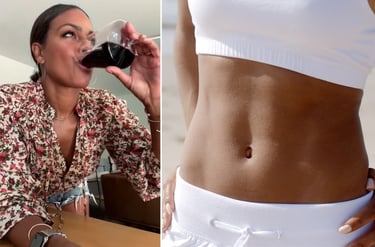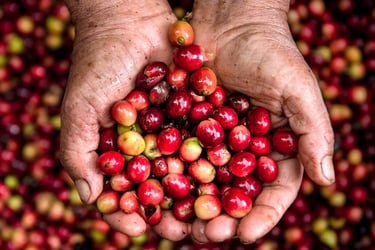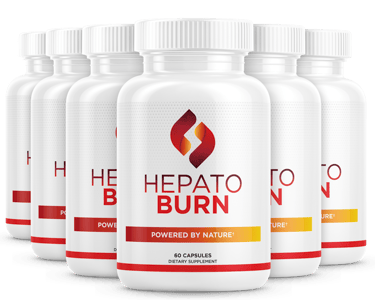Alcoholic vs Drug Addict - Part 3: The Family Illusion
Families often sympathize with the alcoholic but shame the drug addict, fueling stigma and denial. This raw post exposes the emotional double standards and how family reactions can feed or fight the cycle of addiction.
ALCOHOL & DRUG ADDICTION EDUCATION


The Silent Divide That Nobody Wants to Talk About
Let’s get real. When a family hears the words “drug addict,” there’s panic, disappointment, maybe even disgust. When the word is “alcoholic,” there’s a sigh, maybe some sadness, and often… an excuse.
“She’s just been through a lot lately.”
“He’s functioning.”
“It’s just beer.”
But let that same person show up with a heroin needle or a crack pipe, and suddenly the language changes:
“They’ve ruined everything.”
“Get out of my house.”
“I’m done.”
Why does one addict get a lifeline, while the other gets kicked to the curb?
Addiction Isn't a Popularity Contest—But Families Treat It Like One
This isn’t about which substance is worse—it’s about how addiction is viewed differently depending on the substance. Families—whether they mean to or not—often assign moral value to the addiction.
Alcohol feels “normal.” It’s legal. It’s social. It’s woven into weddings, holidays, tailgates, and even grief. So the alcoholic gets a longer leash.
But drugs? Drugs scare people. They feel foreign. They're associated with crime, homelessness, overdose. And that fear creates distance—and shame.
Same Pain, Different Packaging
Here’s what families don’t always see:
The alcoholic puking in the shower every morning is just as sick as the meth user staying up for five days straight.
The wine-drunk mom passed out on the couch is no less dangerous than the junkie nodding off in a public bathroom.
The kid sneaking pills in high school is just as lost as the cousin who’s chasing heroin.
But society—and family systems—often pretend otherwise.
One gets help. The other gets hate.
The Dangerous Impact of Emotional Bias
This emotional favoritism does damage. Serious damage.
The alcoholic starts to believe they’re “not that bad” and delays getting help.
The drug addict starts to believe they’re beyond saving and spirals even faster.
The family reinforces denial on one side and shame on the other.
It’s not intentional. But it’s real. And deadly.
How Families Reinforce the Lie
You might hear things like:
“At least he’s not doing crack.”
“It’s just a few drinks.”
“Better weed than meth.”
Every one of these statements minimizes the reality: addiction is addiction. Comparing poisons doesn’t make them less toxic. It just makes the pain harder to admit.
The Sympathy Double Standard
It’s common to hear a family rally behind an alcoholic loved one:
“We’ll pay for rehab.”
“She just needs a break.”
“He’s been through so much.”
But when it’s drugs?
“You’ve embarrassed us enough.”
“You’re not welcome here.”
“Figure it out yourself.”
And guess what? Both responses can make things worse.
Sympathy can enable. Shame can destroy.
Neither heals anything without boundaries and truth.
How This Double Standard Kills
Here’s what happens when you treat one addiction like a disease and the other like a moral failure:
One addict hides in plain sight, deteriorating slowly.
The other isolates completely and crashes hard.
Both feel misunderstood. Both stop believing recovery is possible.
The Reality Families Need to Hear
Your child addicted to pills and your sibling drinking three bottles of wine a night are both sick. Not weak. Not evil. Not broken beyond repair.
Sick.
Would you shame someone with cancer because their tumor looks different?
No. So don’t do it with addiction.
How to Break the Cycle of Judgment
This isn’t about making excuses. This is about seeing clearly—so you can help effectively. If you’re a family member:
Stop ranking addictions.
Stop assuming “functioning” means “healthy.”
Start having the hard conversations.
Start learning what addiction actually is: a disease of the mind, body, and soul.
Stop Protecting the Comfortable Lies
The lie that alcoholics aren’t as bad.
The lie that drug addicts choose this.
The lie that one is worth saving and the other isn’t.
They’re all lies. And families are often the ones keeping them alive.
You want to help your loved one?
Then rip the mask off. Be honest. Be tough. Be fair.
And treat all addiction as the life-threatening disease it is.
Because if you don’t, you’re not helping.
You’re feeding the monster—and letting shame do your dirty work.


























